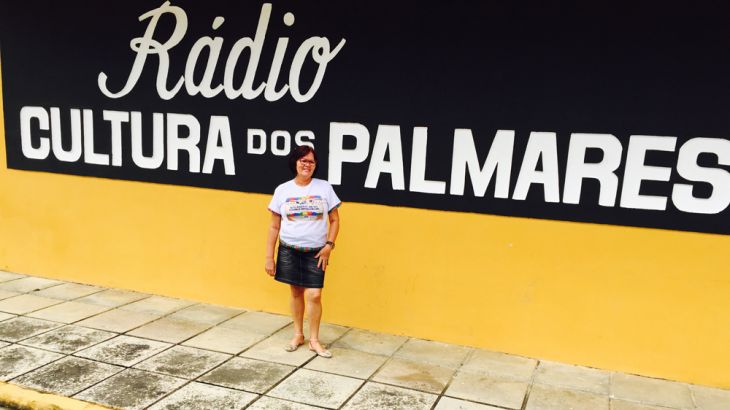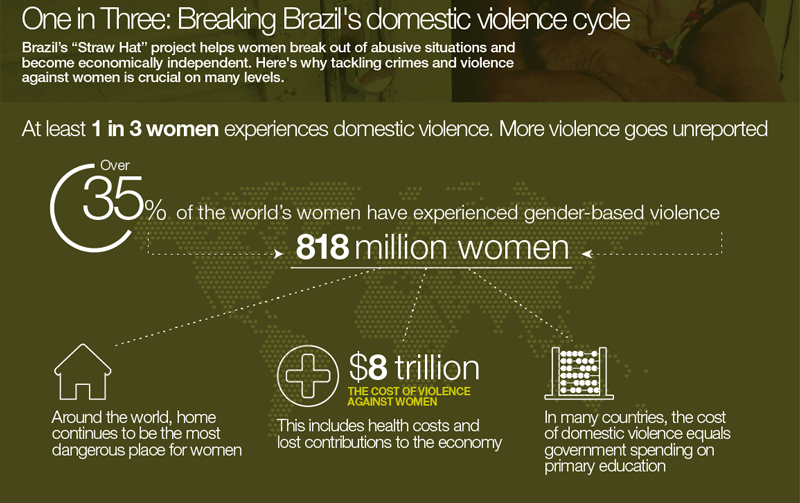
One in Three: Breaking Brazil’s domestic violence cycle
Brazil’s Straw Hat project helps women affected by domestic violence leave abusive situations and enter the economy.
I told him, 'You are no longer going to beat me. It's enough. If you touch me, I'm going to denounce you.' The Maria da Penha law was already in place. And I remember he said, 'Now you've got wings.'
The personal impact goes far deeper than physical injury: Victims are far more likely than other women to have mental health problems and suffer from a severe loss of confidence.
Even beyond this, the effect spirals out into the economy at large: Across the world, domestic and sexual violence against women and children is estimated to cost $8 trillion each year.
The Straw Hat project works with women in the state of Pernambuco in Brazil to help them break out of this cycle and empower themselves and challenge the deeply patriarchal culture.
The project is named after the hats that the women used to wear to work in the fields – the wider the hat, the more protection from the sun.
The project teaches them about their legal rights and helps them recognise the different types of violence they are subjected to.
Magal Silva, a radio host who works with Straw Hat, talks about how, with the support of the project and the backing of the Maria da Penha Law, introduced in 2006 to address crimes against women, she found the courage to stand up to her father and stop the beatings she was regularly subjected to.
She now campaigns against domestic violence and supports other women to gain confidence in themselves.
We meet Marcia Aguiar, a Straw Hat coordinator, who explains how, once the women become more confident, they want to start working.
Together with a range of partner organisations, Straw Hat offers skills-based courses to help women set up small businesses and increase their income.
Nathalia da Silva has a successful business making a creative range of chocolates, and Maria Cleomar, who has learned how to sew, says her husband is getting used to the idea that “women can’t only stay inside the house”.
Cleomar’s confidence has grown, and now she is teaching others how to sew.
Meanwhile, another women’s project to make brooms from plastic bottles is having an effect on the local economy. But leaving the shadow of domestic violence was just the first step for them all.
